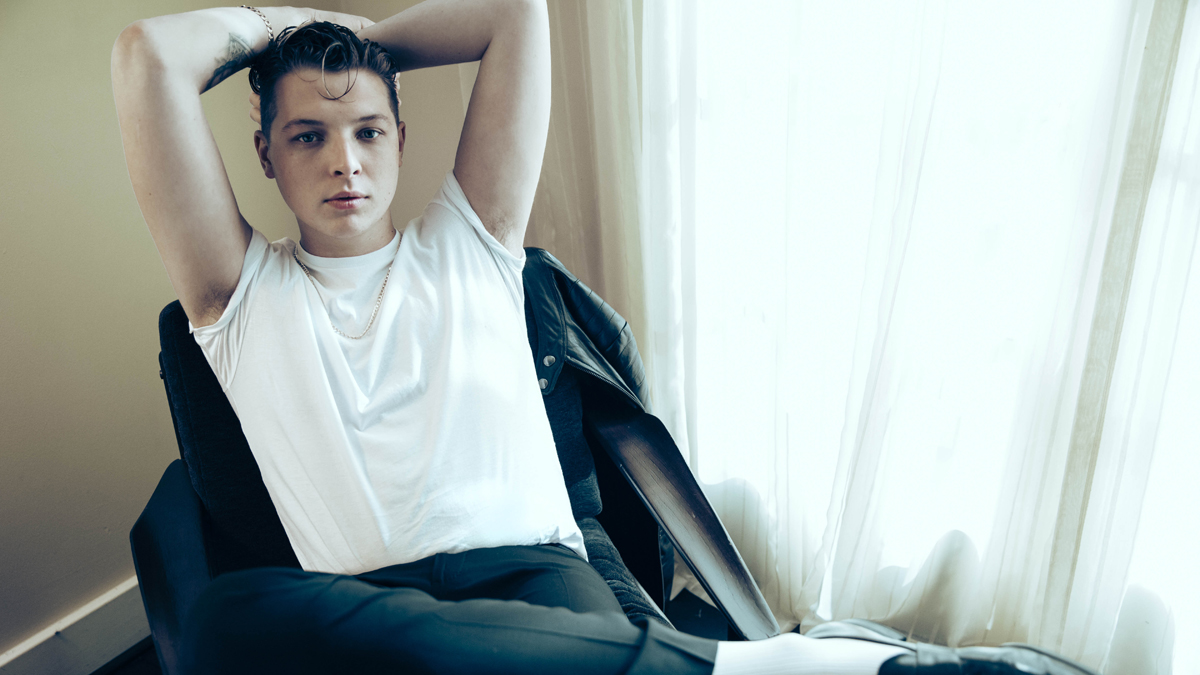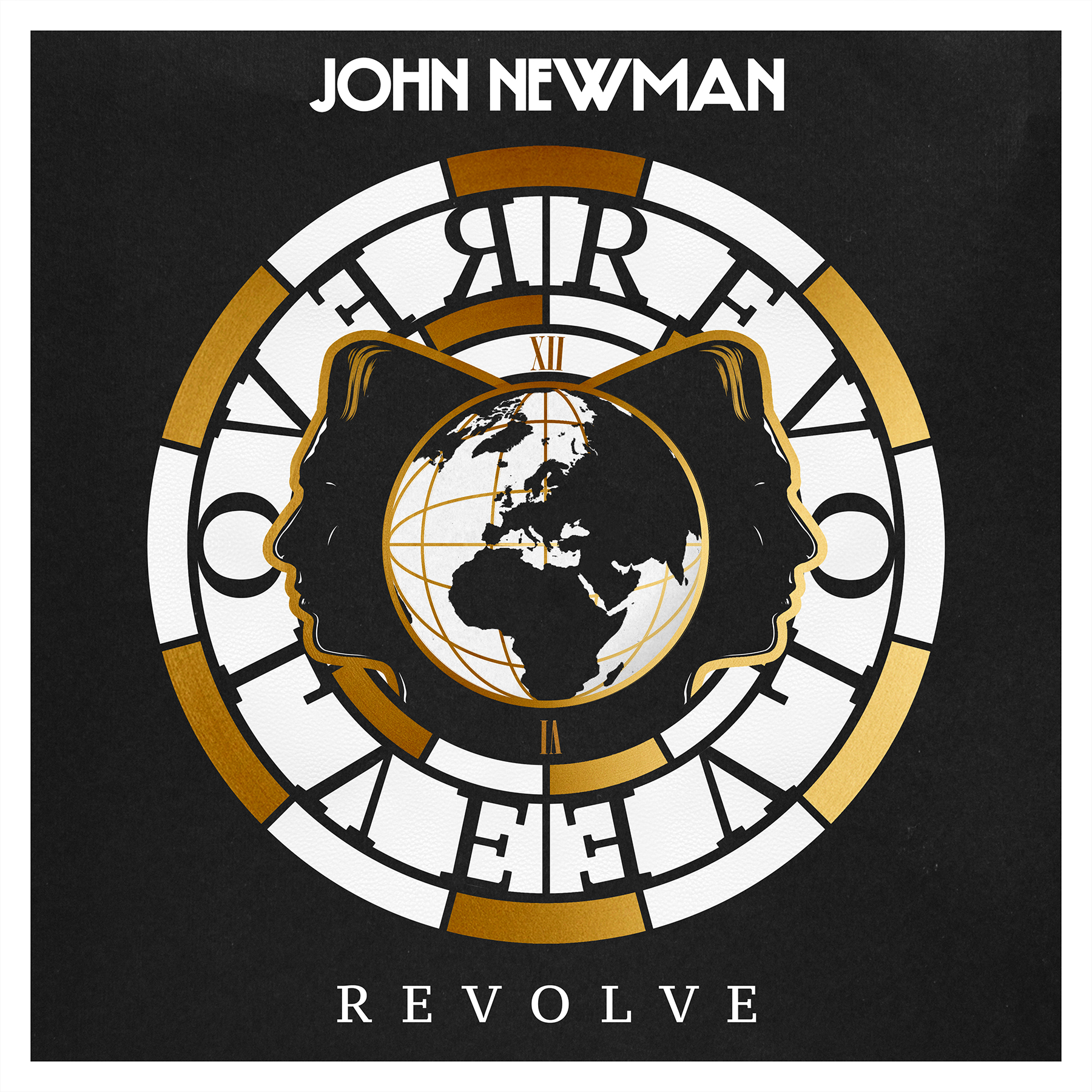John Newman talks about his latest album and studio setup
Chart-topping songwriter's fight to stay on top

When your debut album hits the No. 1 spot it might be easy to feel you have the Midas touch. Not so John Newman. Success came quickly for the Northerner, initially known for his single Love Me Again and chart-topping collaborations with Rudimental and Calvin Harris.
Last year, Newman was nominated for three Brit Awards, including best British Male Solo Artist. However, with Newman's second album about to be released, the soul star is certainly not resting on his laurels.
Newman lets us in on the secret to his success, and how his studio setup helps bring the best out of his songwriting talent.
You got off on the right foot with Love Me Again and the Calvin Harris hit Blame, is it daunting to follow up on that sort of success?
"Yeah, a little bit because the fight for success is more important than success itself. I mean the Calvin track's a bit different because it's the amount of work he put in to his success; then I just climbed on, but the amount of work I put into that first record and got back was ridiculous.
"You've just got to remember that you're only as successful as your current hit. If I keep remembering that I'll have success again, but the pressure's on."
Did you sit down and plan the whole concept around your second album, Revolve?
Get the MusicRadar Newsletter
Want all the hottest music and gear news, reviews, deals, features and more, direct to your inbox? Sign up here.
"It all started from the idea of the logo. I was watching Rudimental at the side of the stage and pointed over to the other end of the festival and said "I can see your album logo from here" [laughs]. That triggered me to go off and do this idea of a circular logo that was recognisable and could be put anywhere.
"I started looking into the concept of what fits into circles, how they revolve and that everything's on a cycle, from fashion to music to relationships, to my album being released and needing to work hard to repeat my success."
How long did the album take to write and record?
"I had the hook idea for the first track even before the release of my first album Tribute; I was already starting to write tunes for my second record then. It only took me seven months to make because I had a very clear vision of what I wanted. I'd done enough research on my influences, built up this sound and was just excited to go at it.
"My first album wasn't that successful, so I couldn't turn around and spend four years making another record - no fucking point."
I think it's an amazing time now because there's so much freedom around music and the world of music production is so open."
Do you see it as an evolution of your sound or honing and perfecting what's come before?
"I think it's honing and perfecting but I've still not done it. That's because you find new influences and formulas while making an album. It's all part of being a perfectionist, discovering problems, like you can't make an advert that's four minutes long and use an image of James Dean, you can't bring musicians in and have them waiting to play because it costs a fortune, and you can't presume your success is going to be just as big if you get rid of your social media.
"Even the crafting of the record itself, the one thing I learned is stop fucking around trying to look intelligent when it comes to interviews and get the job done, and stop putting an SM58 microphone in a carrier bag in a bucket of water in front of three kick drums to try and get a kick drum sound. You've got a vision, stop experimenting and just programme it."
How did you hook in actor Idris Elba for the opening track?
"I spent my whole student life with my friend Tom and he'd got himself stuck in a 9 to 5. I just thought he should see the world a little more, so I broke his everyday life by saying come and work with me. He helped me write this beautiful piece to go on the start of my album.
"The original plan for this intro piece was that it would be a conceptual introduction to the album, a captivating 3-minute long piece that was quite American and motivational. There were talks of Will Smith, but that never came through, so in the end I asked Idris because I didn't want to look like Johnny big balls."
What environment was the album recorded in?
"The album was recorded in LA, not because I wanted to spend money, drive fast cars and bang good-looking birds, but because they have incredibly talented people working within music and amazing studios. I found nothing about the lifestyle appealing, apart from being able to drive to the Grand Canyon.
"I think it made me more grounded than I've ever been. We recorded at Westlake studios and a little bit in Miami, and I worked with some incredible people including a lot of Michael Jackson's musicians: Jerry Hey, Dan Higgins, and his guitarist Paul Jackson Jr.
"It's not very cost-effective, but I like to have a whole jungle of instruments set up. I'm one of those people that can pick up an instrument and make it work if I have a vision of what I want."
Are the songs already in your head or do you need to coax them out by playing in the studio?
"They're out there somewhere, just needs a lot of digging. I get ideas when I'm walking down the street, painting my bedroom or whatever [laughs]. I was trained to be a mechanic, so I'm constantly playing with cars and building things, that's when the real ideas come out because there's no pressure from the real world or my job.
"If I'm into a songwriting session, the ideas usually come after a few hours on the piano. But I don't settle for anything; I will search, search, search, and the songwriters I'm working with get pissed off because they're like, "that was alright", and I'm like, "yeah, it was just alright", let's get the best we can out of today."
My first album wasn't that successful, so I couldn't turn around and spend four years making another record - no fucking point."
You worked with numerous different producers on the album, what do you think they brought to the party?
"I could produce the whole album myself - I'm not saying it would be good, but I could easily produce my vision. It's about somebody coming in and saying, why don't you try this and mix things up a little; otherwise I'll end up with a record that sounds quite similar in places.
"It's about giving people the sketch and colours you want to use but letting them paint it to get something you never thought you could get."
Do you have a tech setup for getting those ideas down?
"I use a laptop at home, because it's in my own space and time. I'll use Logic there and Pro Tools in the studio because it's nice to reap the benefits of both programmes.
"I prefer Logic for programming, but Pro Tools is better for pulling those pre-programmed parts out and is better quality for recording and doing finals."
And the songwriting process itself?
"The key to starting any song of mine is getting the chords straight under any hook ideas I have. It's really important that however many bells and whistles you put on a track you can still sit down at the piano and play a song as a song. If it feels good like that then it's going to feel even better when it's finished, so I never rely on production.
"Once I have the chords down, I'll start honing in on sampling the drums, although I always prefer to play them first."
Are you a sound programmer?
"I'll use a Moog bass - Rob Papen's SubBoomBass is pretty cool; that's based on an old hardware synth. It depends what you need it for. Do you want to be the guy that only uses vintage mics, bass and a drum kit or can you put your talent into programming them?
"There are reasons for doing both, but I think it's an amazing time now because there's so much freedom around music and the world of music production is so open."
Do you mix your own records as well as produce them?
"I think that's the time to let go. You can be a perfectionist and keep listening to your mixes over and over, but it's nice for somebody else to say here's your foundation, now how do you want to change it? But I was in very good hands because I had Manny Marroquin mixing the record and he blew my mind in every sense.
"More often than not, the things I liked he picked up on without me even saying anything - that was a learning experience in itself."

The new John Newman album 'Revolve' is out now on Island, Universal and you'll be able to purchase it from the official store and iTunes. Check out John's Facebook and Twitter pages for more info.


"Reggae is more freeform than the blues. But more important, reggae is for everyone": Bob Marley and the Wailers' Catch a Fire, track-by-track
“Part of a beautiful American tradition”: A music theory expert explains the country roots of Beyoncé’s Texas Hold ‘Em, and why it also owes a debt to the blues









